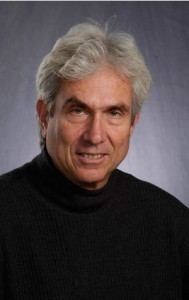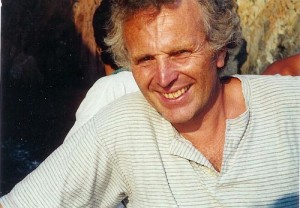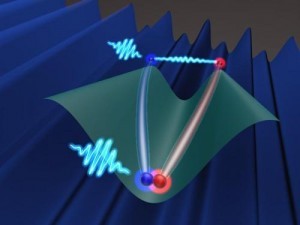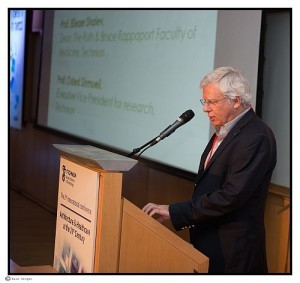The Israel Chemical Society Medal is awarded this year to two individuals whose contribution to the global chemical industry is huge by any standard. The ceremony will take place in the Knesset on January 4, in the presence of ministers, MKs, leaders of the academic system and chemical industry, guests from abroad and hundreds of faculty and students from all universities and technological colleges.
Eli Hurvitz is an industrialist who transformed Teva, to Israel’s largest company, the flagship of the Israeli industry the world leader in producing generic drugs. Teva currently employs about 40 thousand employees in dozens of factories and subsidiaries around the world, yet it retains its core management and development in Israel by about 6000 employees.
Professor Meir Wilchek is the father of the technology, known as affinity chromatography, which is used to separate and purify proteins in any biochemical laboratory and pharmaceutical industry worldwide. This technology led to the establishment of more than 75 high-tech companies worldwide, with sales of over 70 billion dollars this year.
The Israel Chemical Society Medal is the highest honor, which is awarded by this association, founded in 1933 by Jewish scientists from Germany, and is considered the oldest scientific organization in Israel. The ICS main objectives are the promotion of research and teaching in chemistry at universities, colleges and schools, and promotion of the chemical industry in Israel.
President of the Israel Chemical Society, Professor Ehud Keinan of the Schulich Faculty of Chemistry in the Technion, said that the UN proclaimed 2011 the International Year of Chemistry, and all national and international organizations are preparing accordingly. The goal is to promote the image of chemistry and chemical industry, emphasizing their great contribution to health, agriculture, economy and solving the hardships of the human race, like water problems, food, energy, environment and raw materials.
“Even before the establishment of the State of Israel and to this day, chemistry has been one of the most prominent areas of scientific excellence in this country,” stressed Professor Keinan. “Chemistry is the basis and the core of all experimental sciences, and the basis for all knowledge-based industries. The chemical industry has contributed prominently to the national economy, as chemical products constitute 25% of total exports of the State of Israel. Israel has now over 7000 chemists, 5000 chemical engineers, 1000 chemistry teachers and a large number of other professionals, working as chemists, such as biochemists, Biotechnologists, food engineers, minerals and energy engineers.”
CEO of the Israel Chemical Society, Hanna Attali, said that the festive event in the Knesset will include the exposure of two new stamps issued by the Philatelic Service to commemorate the occasion. Also, the green chemical industry prize will be awarded to a chemical enterprise. She added that the international year of chemistry also marks the 100 years to the Chemistry Nobel Prize awarded to Marie Curie, and to the contribution of women to science.
Eli Hurvitz
Although not educated as a chemist, his contributions to the chemical industry have been extraordinary- not only on the national level, but also by global standards. He led the Teva group for 35 years and brought it from a small, unknown pharmaceutical company to its standing today as a world leader in generic pharmaceuticals. These great achievements were attained by implementing a culture of excellence and strategic management based on a long-term vision of the future leadership of the company.
Eli Hurvitz was born in Jerusalem in 1932. In 1953, after graduating from the Hebrew University economics school in Tel Aviv, Eli began his career as a junior employee in the drug company “Asia.” In 1976 he was appointed to the position of CEO. With his long-term strategic vision, he orchestrated the merger of several pharmaceutical companies into the company named “Teva” which he then headed for many years as CEO (1976-2002) and later as chairman of the board until 2009.
In addition to his great responsibilities at Teva, Eli was also recruited for the support of many social, cultural, and scientific activities in Israel. He was involved in a long list of public positions, such as the President of the Manufacturers Association, Chairman of the Federation of Economic Organizations, Chairman of the Israel Export Institute, Chairman of the Board of Bank Leumi, Chairman of the Israeli Task Force, Chairman of the Jerusalem Development Authority, member of the Advisory Committee of the Bank of Israel, member of the Board of Governors of the Weizmann Institute and Tel Aviv University, and many more.
He was awarded many and varied awards from academic and public institutions for his public and industry activities, including honorary doctorates from the Technion, Weizmann Institute, Ben Gurion University, Tel Aviv University, and Bar Ilan University. He is the recipient of the Industry Prize, and the State of Israel Jubilee Award for lifetime achievement and special contributions to the state.
Professor Meir Wilchek
Professor Wilchek was born in Warsaw, Poland in 1935. During World War II he was taken to Siberia from the Soviet Union. His father, the rabbi of Warsaw, was killed along with most of his family. In 1949, he immigrated to Israel with his mother and sister where they settled in Rehovot. After completing his military service in the Air Force, he studied chemistry and physics at Bar Ilan University, receiving his first degree in 1960 and his Ph.D. in 1965 from the Weizmann Institute of Science in the Department of Biophysics. During his studies he worked as a chemist mainly in the company “Yeda,” afterwards joining the faculty of biophysics at the Weizmann Institute. He filled various senior positions at the Weizmann Institute such as Department Head of Biophysics, Head of the Professors’ Council, and Dean of the Faculty of biochemistry and biophysics. He was a visiting scientist at the U.S. National Institutes of Health, served as an advisor to biotechnology companies, and served in many professional committees, amongst them the Shamgar Commission.
Professor Wilchek has published more than 400 scientific papers. He is known mainly for the development of the modern concept of affinity between biological molecules, resulting in the implementation of this concept in various fields of life sciences. In 1968 he and his colleagues developed the method of affinity chromatography, which revolutionized the isolation of biochemical materials and opened the door to new opportunities in biology, biotechnology, chemistry, nanotechnology, physics, and many other fields. This method has contributed to many developments in life sciences, such as DNA and protein chips. It has had an especially profound impact on the field of medicine, for example it has accelerated the development of protein-based drugs. This technology led to the creation of dozens of tech companies worldwide, with sales growing from $ 40 billion in 2008 to 70 billion this year. Moreover, Professor Wilchek developed the Avidin-Biotin system which is used to diagnose diseases, isolate biological materials for biotechnological or nano-technological purposes, and for biomedical research. This system has enabled many laboratories to give up their need for radioactive materials.
Professor Wilchek has gained much recognition for his research- he was awarded honorary doctorate degrees from the University of Waterloo, Canada, Bar Ilan University, University of Jyvaskyla, Finland, and Ben Gurion University. He is the recipient of the Wolf Prize for medicine, the Israeli Prize for Biotechnology, the Outstanding Clinical Chemist Prize from the International Federation of Clinical Chemists, the Christian B. Abfinsen Prize of the Protein Society, the Willheim Exner Medal from Austria, and the Emet Prize in Chemistry. He is a member of the Israel Academy of Sciences, honorary member of the American Society of Biological Chemists, and a foreign member of the Institute of Medicine of the National Academy of Sciences. At the Weizmann Institute he holds the Marc Gutwirth Chair of Molecular Biology.



 This helicopter can be used for special operations, observation and tracking
This helicopter can be used for special operations, observation and tracking erman and American scientists successfully measured the “Zak phase,” discovered by Professor Joshua Zak from the Technion 25 years ago. This finding was revealed in articles published in the prestigious scientific journals Nature Physics and Science.
erman and American scientists successfully measured the “Zak phase,” discovered by Professor Joshua Zak from the Technion 25 years ago. This finding was revealed in articles published in the prestigious scientific journals Nature Physics and Science. An International Conference that took place last week at the Faculty of Architecture and Town Planning touched on both fields and overlapping areas between them
An International Conference that took place last week at the Faculty of Architecture and Town Planning touched on both fields and overlapping areas between them École Polytechnique and Technion – Israel Institute of Technology signed today an agreement for academic cooperation.
École Polytechnique and Technion – Israel Institute of Technology signed today an agreement for academic cooperation.